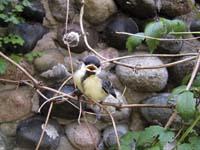When the mother is stressed, the wings grow more

Having long wings and small bodies can help them escape more easily from predators.
If during the ovulation of their mother they observe predators, the descendants of these eggs have longer wings. To this conclusion comes a team of researchers from the University of Bern, who have made known in the journal Functional Ecology.
It is not the first time that the influence of the presence of predators on generations to come is analyzed. Researchers at the University of Bern, for example, found in a 2005 study that the presence of predators increased levels of corticosteroid hormones in females. This made the descendants smaller. However, they could not know if it was a negative consequence of stress or an adaptive response to the presence of predators in the area.
To clarify this doubt, the new study analyzed a natural population of great coal during female ovulation. For a part of the population they simulated the presence of gavilans, with dissected gavilans exposed and emitting their sounds. In the other group, on the contrary, they did so with the Birigarros, which are not predators. Once the incubation was completed, the chickens were taken and introduced into a population outside the experiment, where the breeding of the offspring was followed.
As you could see, all the offspring of females who had been with predators were smaller than others. And they also realized that the first group's children grew their wings faster and more. On average, 1.8 millimeters were larger than females without predators. "Although the fact that they are smaller is considered an impediment, the result can be a better flight supported by the longer wings, which helps to survive," said one of the researchers.





